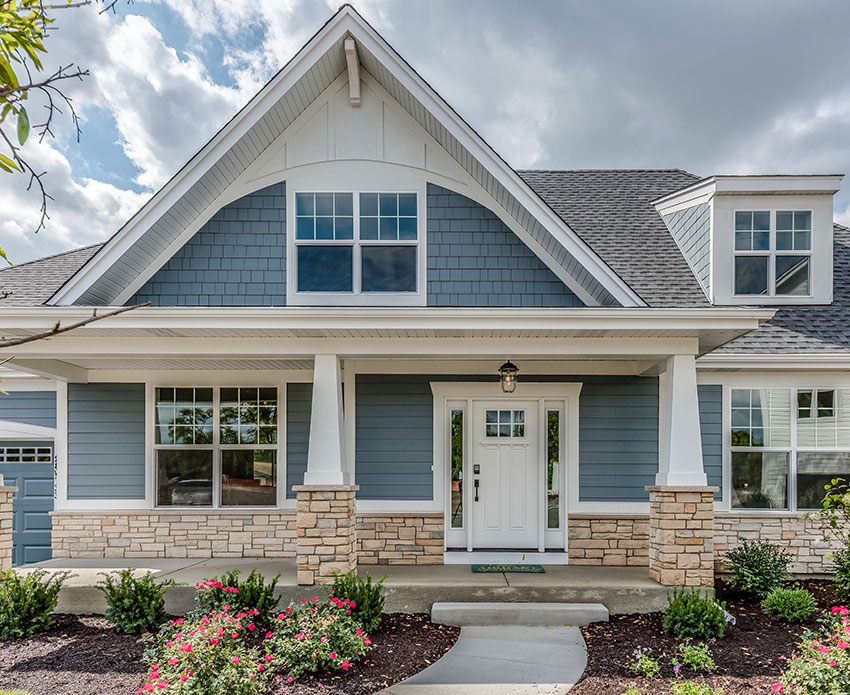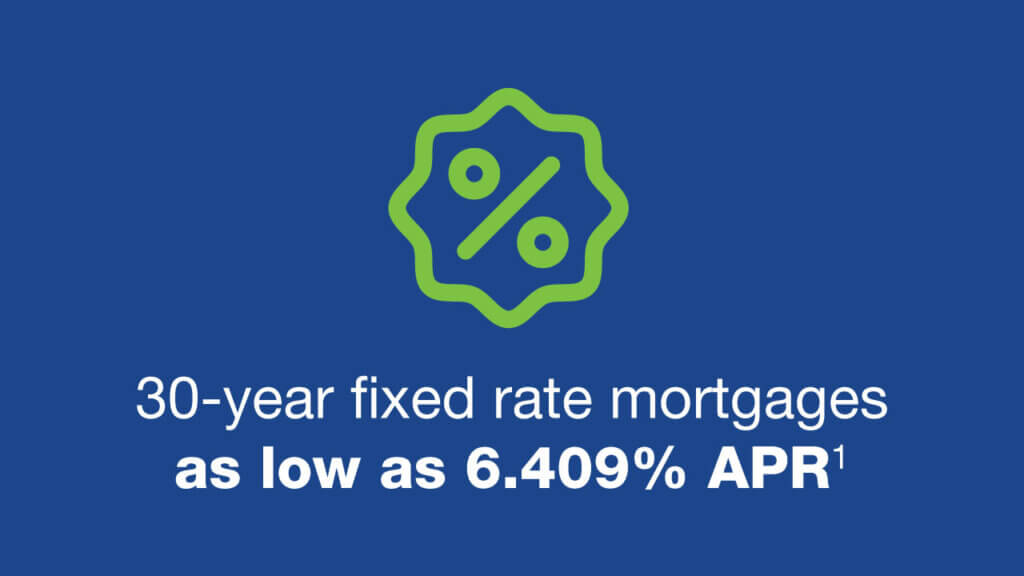Nevada and California are home to some of the most desirable places to live in the United States. If you’re among those looking to buy a home in the Silver State or Golden State, Greater Nevada Mortgage offers home loans in both.
Buy a Home in Nevada or California


We’re here to help you meet your homeownership goals! We also prioritize speed for clients, with an average turnaround of only 22 days from application completion to ready-to-close for purchase loans!1
10 Steps to Buying a Home in Nevada or California
The first step to purchasing a home in Nevada or California is to do your own in-depth research of the region to determine which neighborhood is the best fit for your family. From there, the fun begins. Here’s a quick guide to buying a home in either state.
1. Begin Researching Homes in Your Area
2. Calculate How Much You Can Afford
3. Save for a Down Payment and Closing Costs
4. Decide What Type of Mortgage is Right for You
5. Get Prequalified and Preapproved for a Mortgage
6. Find the Right Real Estate Agent
7. Begin Shopping for a Home and Make an Offer
8. Get a Home Inspection and Appraisal
Step 1: Begin Researching Homes in Your Area
Once you’ve narrowed your list down to a few neighborhoods, begin to compare home sale prices (also known as “comparables”) for those similar to the size and home type that you’re looking for. For instance, a 2,500 square foot home might cost more on average in some neighborhoods than in others. Knowing the difference can help you refine your decisions in the home buying process.
If you’re working with a real estate professional, they can provide this information for you, but if you’re just in the dreaming phase, you can easily find this information on popular home price websites and in public records.
Step 2: Calculate How Much You Can Afford
First things first. Purchasing a home can be costly. Some of the factors to be aware of include closing costs, monthly payments (and how credit scores can impact them), homeowners’ insurance, interest rates at the time of purchase, and, of course, the home’s purchase price.
Note that some of these costs will be one-time, while others are recurring from month to month. Once you have an idea of how much your initial investment plus the monthly outgo will be, you can start to put together a plan to buy the house of your dreams. It’s important to be realistic at this stage. Just because a home is priced within your range doesn’t mean that there won’t be additional ongoing costs that you might not have considered. Homeownership is rewarding, but it can also be expensive. From property taxes to maintenance and repairs to Home Owners’ Association fees, the little things can add up very quickly.
Step 3: Save for a Down Payment and Closing Costs
If you’re a long-term planner, you may already have this step covered. If you’ve only recently decided you want to take the next step to become a homeowner, you’ll need to turn your attention and energy toward saving up for a down payment on your new home. Most mortgages require a down payment for purchases. However, there are some types of home loans backed by the government and down payment assistance programs that may reduce or not require down payments. For many people, that is a considerable amount of money, so it’s best to plan accordingly and be patient with the process. Additional fees to consider include closing costs and an extra budget for any surprise expenses. Note: many lenders require Private Mortgage Insurance, but if your down payment is large enough, it can eliminate the need for PMI.
Step 4: Decide What Type of Mortgage is Right for You
Here’s where the knowledgeable Mortgage Consultants at Greater Nevada Mortgage come into play. As experienced professionals, we understand the nuances of the different types of mortgages available to homebuyers, and we can walk you through this process in simple, easy-to-understand terms. We can help you figure out whether an FHA loan is right for you or if you would be a better fit for a conventional loan. For those who have served in the armed forces, we can guide you through the steps to apply for an affordable VA loan.
Step 5: Get Pre-approved for a Mortgage
To be pre-approved for a mortgage, you’ll need to have all your paperwork related to your current financial situation at the ready. In many cases, you can be preapproved simply by submitting your assets and income information so that we can quickly run your credit score. For this, a hard credit pull is required. In other cases, we’ll want to discuss your bank account balances, mortgage statements from any other properties you already own, pay stubs from work, tax returns, credit reports and other pertinent personal documentation. These help us fully understand your ability to purchase a home and help guide the process of choosing the right loan for your home ownership plans.
Some of the documents you may need, and these are included in our mortgage documents checklist:
- Bank statements
- Business documents
- Credit report
- List of monthly debts
- Gift letters
- Investment account statements
- Mortgage states for current home
- Paystubs
- Tax documents
- Form DD214
- Personal identification
- Statement of service (for military service members and veterans)
- Certificate of eligibility
Step 6: Find the Right Real Estate Agent
Real estate agents are not technically necessary when it comes to buying a home, but most buyers find great value in working with professionals who understand the ins and outs of the ever-changing real estate market. This is especially true here in the West where values fluctuate very quickly. To find the right real estate agent (and, for that matter, to find a home), talk to your friends, family and professional connections about their experiences. Need another Greater resource? We work with quality real estate agents on a daily basis, and we would be happy to help connect you with the ones that could be a good fit! Remember, one agent typically represents the buyer (you) and another represents the seller, so it’s important to do your due diligence and speak with a variety of agents to find one you feel comfortable with.
Step 7: Begin Shopping for a Home and Make an Offer
For most, this is one of the more exciting stages of the process. It’s time to shop for your next home. Working side-by-side with your real estate agent, you will narrow down neighborhoods and specific homes in order to find the one that will check most of the boxes on your personal wish list. Once you’ve selected a home, it’s time to make an offer.
Step 8: Get a Home Inspection and Appraisal
Congrats! After being selected by the seller come the steps for due diligence by either party. Many buyers underestimate the power of a home inspection and appraisal. It is during this stage that all the facts about a home come to light so that you understand exactly what you’re buying. If, for instance, there is an issue with the home’s electrical wiring, this is the point at which you’ll learn about it and be able to adjust your negotiations accordingly or order extra work to be done. A professional home inspector and home appraiser will perform thorough assessments of the home so that everyone involved has all the information needed to move forward with the purchase and sale.
Step 9: Coordinate the Paperwork
With the appraisal and inspection complete, you’ll now move to the final paperwork. This may include homeowners’ insurance, a closing disclosure, loan estimate and fully completed application, a mortgage and promissory note and a deed of trust.
Step 10: Close on Your New Home
Closing day has arrived! It’s time to complete your final walk-through of the home and take over the keys from the previous owner or home builder. At this point, a title/escrow company will be brought in to ensure the right documents are in place and that the money is where it needs to be. After that, it’s time to pull the moving van into the driveway because it’s the day you’ve been waiting for. The rest of the story is up to you to write.
Frequently Asked Questions About How to Buy a Home
-
What is the best way to buy a house for the first time?
If you’re a first-time homebuyer, we are here for you. As you begin to realize your dreams of home ownership, we understand that lots of questions will arise. Know that we’re here to help answer them with our decades of experience working with buyers in California and Nevada. First-time homebuyer programs offered at Greater Nevada Mortgage range from down payment assistance to specific loan options.
Yet, there are so many that it can be a bit hard to know which one is right for you. Do you need an ARM? An FMV or an MIP? Don’t sweat it. We will walk you through all of the options to find the right financing for your life and budget. We’ll discuss the process and benefits of home ownership, current rates and terms, and available loan options.
Some of the tools we offer first-time homebuyers include:
- Down payment assistance programs such as Home Is Possible and Home At Last
- Workforce Initiative Subsidy for Homeownership (WISH) Grants and Middle-Income Downpayment Assistance Grants for first-time homebuyers
- A mortgage calculator to help run payment scenarios
- A mortgage documents checklist to get your information ready for applying
-
How much money should I save before buying a house?
While many real estate agents will recommend that you should have a 20% down payment on a home, that’s not the full story. While a larger down payment may offer benefits in the form of a lower payment, lower interest rate, etc., not everyone can put that much down but can still get into a home. It’s best to work with a professional Mortgage Consultant to assess your situation to see what you may qualify for with or without a down payment.
Greater Nevada Mortgage offers down payment assistance programs to qualifying borrowers.
-
What does your credit score have to be to buy a house?
It’s recommended you have a credit score of 620 or better as your credit score will have a direct impact on the interest rate you secure and monthly payment amount. Still, a variety of factors can come into play, such as whether there is a co-borrower involved, property type, loan to value, and other criteria. Or, if you’re considering a federal loan such as FHA or VA, you might be able to purchase a home with a lower credit score.

Everyone Deserves a Home
According to the National Alliance to End Homelessness, over 8,600 Nevadans experience homelessness on any given night. GNM’s Keys to Greater program donates a portion of the revenue from every new mortgage or refinance to community nonprofit organizations that address homelessness, and since launching in 2021, over $206,000 has been donated!

1Annual Percentage Rate (APR) is based on a loan amount of $450,000 at 80% Loan-to-Value with a credit score of 700 for conforming loans. Rates and fees are subject to change without notice. Membership with Greater Nevada Credit Union is required prior to loan funding, which is open to anyone living or working in any of Nevada’s 17 counties and members of their immediate family. Average purchase loan turnaround time is based on application completion to final approval, with all required conditions and guidelines being met awaiting the Close of Escrow date, for April 2025. This is not a guaranteed timeframe for all loan applications. Each loan transaction is different, and individual turnaround times will vary.